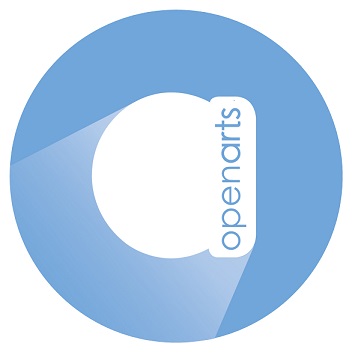Open Arts Blog
Welcome to our blog where on the second Tuesday of each month we will discuss a new topic in connection with arts and disability, ableism, accessibility, disability equality, media representation, and much more.
July 2024 - Trying to combat climate change? Not without us!

This month Cinzia discusses the importance of considering accessibility when talking about greener solutions.
As the climate emergency intensifies, it’s crucial to recognise that working towards a better, cleaner and healthier environment is essential.
But what about disabled people?
According to Julie’s Bicycle’s 2023 survey (a not-for-profit organisation mobilising the arts and culture to take action on the climate), one-third of disabled respondents feel that environmental solutions are not easy to navigate and do not meet their access requirements. Additionally, only 22% feel included and able to participate in events and festivals that align with their climate values.
As an arts and disability organisation that is also passionate about the environment, we know first-hand how difficult it is to meet environmental sustainability goals while putting accessibility at the forefront of everything we do. For example, we understand that using public transport would be kinder to the environment but this is not always an option for us. Buses and trains offer limited wheelchair access and not all stations are accessible. Similarly, using paper or metal straws is not always possible as some individuals with limited dexterity find them really difficult to use.
These are not just isolated instances but part of a broader issue of not having a say in policymaking that still follows a ‘one size fits all’ mentality. The disabled community is rarely included in climate change conversations and our access requirements are not always considered. Consequently, practical solutions to tackle the climate crisis often conflict with solutions that improve access. Disability and environmental activists call this Eco-ableism.
To address Eco-ableism it is vital to integrate disability-inclusive strategies into climate policies. Policy development must be inclusive, ensuring that disabled people are represented in all stages, from planning to implementation.
Things are moving in the right direction though with organisations like Attitude is Everything, Julie’s Bicycle and A Greener Future bringing together disabled people and the UK’s live events sector through a series of roundtables and interviews to discuss the barriers and solutions. They recently published a new toolkit on how to make disabled people’s access to live events environmentally sustainable.
Importantly, it also acknowledges that sometimes there might not be a solution available yet that is both accessible and environmentally friendly. Disabled people might require the use of single-use items, cars or additional equipment but they should never be blamed or shamed for it.
A better, cleaner and healthier environment, if achieved in the right way, could hugely benefit disabled people but as usual, we need to be included in the conversation and have a seat at the table in policy and decision-making.
June 2024 - Do you see me? #LearningDisabilityWeek
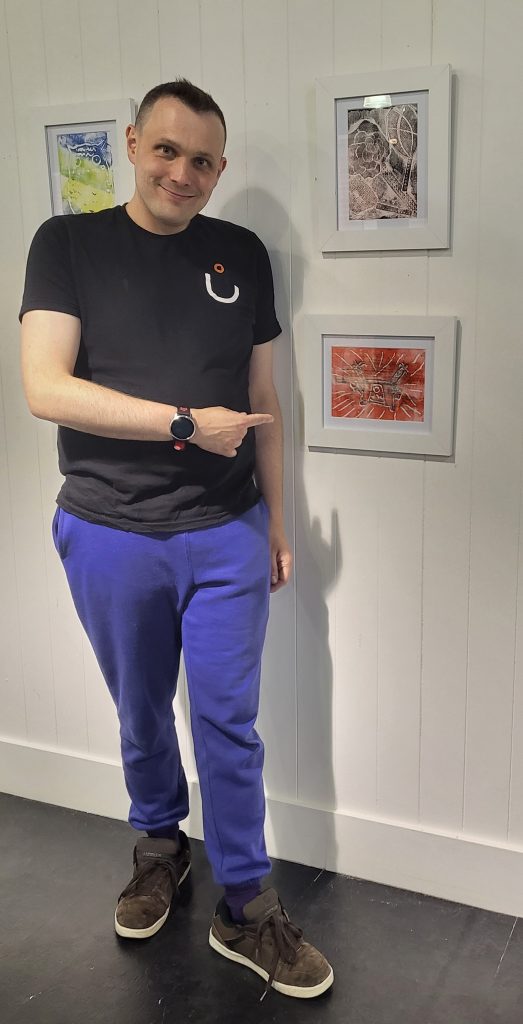
It is #LearningDisabilityWeek and this year’s theme is “Do you see me?”
It highlights the importance of seeing, hearing, and valuing people with learning disabilities.
According to Mencap NI’s Employment Paper, 11% of 18-64 year olds in NI have a learning disability and are at much greater risk of experiencing a range of economic, social and health inequalities. However, by raising awareness and sharing the stories of people with learning disabilities, we can make changes.
So, this month’s blog is the perfect opportunity to chat to Darren Murphy. He’s an actor, dancer, juggler, artist; a proud uncle and loving fiancé.
Darren says, “People often think that people with learning disabilities can’t do much, but I have a job and live on my own. I love going to the cinema with my fiancée Rachel, running and learning new languages.” His calendar is always packed with Open Arts activities, Streetwise Community Circus, travelling, cooking for Rachel or enjoying nights out. He’s living proof that a learning disability doesn’t define him.
Darren played a crucial role in our Inclusive Tourism project with Belfast City Council. As a member of our Lived Experience Team, he participated in our Living Library events and helped design training materials for organisations on effective communication with disabled people.
Darren is a passionate advocate for people with learning disabilities. He constantly challenges misconceptions and shows what’s possible. Darren’s favourite words, which he shares with Open Arts’ staff at his weekly lunch visits, are “believe in yourself and you can do anything.”
As we celebrate Learning Disability Week, we are very proud of calling Darren our own and we certainly ‘See him’ for the accomplished man that he is.
You will have the opportunity to chat with Darren at two upcoming performances in Connswater Shopping Centre. Luminous Soul’s performance on Thursday 13th June at 2pm and his unique character in the Open Arts drama group performance of ‘The Wonky Family Adventures’ on Monday 24th June (you can find more info on our news page here).
May 2024 - Pause & Paws: Creativity, Resilience, and Mental Well-being
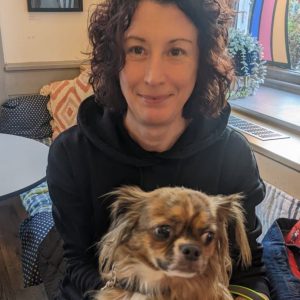
On the second day of Mental Health Awareness Week and in the midst of Northern Ireland Mental Health Festival (NIMAF), it’s the perfect time to reflect on creativity and mental well-being.
This month, Eileen, our CEO, opens up about her personal journey with mental health. She discusses the importance of seeking help and some of her strategies to improve her mental health.
At Open Arts, our mission to inspire and support the creativity and artistic development of disabled people aligns with our commitment to raising awareness about mental health. Whether it’s through visual art, writing, music, dance, or drama, in our programme I’ve witnessed firsthand the profound positive impact that engaging in the arts can have on mental health.
According to the Mental Health in Northern Ireland Fundamental Facts 2023 report 1 in 5 adults and 1 in 8 children in Northern Ireland, have a probable mental illness.
A study commissioned by the Northern Ireland Executive revealed that 78% of participants experienced an uplift in mood and overall happiness after engaging in artistic activities.
As CEO, it is important to me to support the mental well-being of staff, participants and everyone involved in Open Arts. This is achieved, in a large part, by our ‘open door’ policy. Our office, and all of our activities, are safe and friendly spaces for everyone. However, it’s only recently that I’ve fully acknowledged the need to extend that same care to myself. Last year, I was struggling with my own mental health. This was caused by many factors including the sudden loss of my beautiful Maisie Cat, made famous on our social media pages over lockdown as my Executive Assistant. The theme of this year’s NIMAF, which Open Arts is part of, is ‘PAUSE.’ My Maisie Cat’s paws were a big part of what had helped me pause for years. This loss, coupled with other traumatic circumstances, led me to reach out to my GP, who started me on medication. I have also been receiving support through counselling.
Through the bad months last year when I was particularly unwell, with the support of my colleagues and the board of Open Arts, I continued to find solace in my work and found joy in seeing the impact of arts and creativity on all involved. I am much better now and have become more protective of my PAUSE time to keep it that way. My pauses are achieved by walking, including with Teddy (my brother’s dog, different paws to help me pause). In fact, Teddy has inspired a new strategy in our office, ‘Be more Teddy,’ which involves wiggling ourselves, in the way he joyously wiggles on his walks, to relieve stress and tension. I also make space to read or favourites of mine that some might not understand – cleaning and cooking. I have also become an advocate of napping at the weekend!
I would encourage anyone, who is struggling, to reach out to family, friends or colleagues and if needed, your doctor.
Find your PAUSE button.
As part of the NIMAF, we have upcoming relaxing gamelan sessions, which may be the start of your journey to pause more. After a recent gamelan session, 100% of participants felt more relaxed.
For more information and to register for our Relaxing Gamelan sessions and ‘Try it’ workshops click the link.
April 2024 - The Gamelan experience: A unique gateway to Inclusive Music
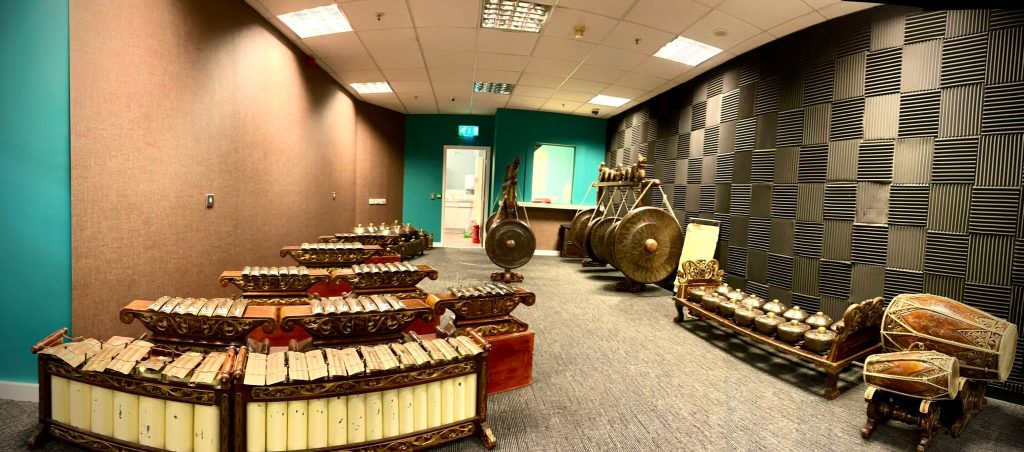
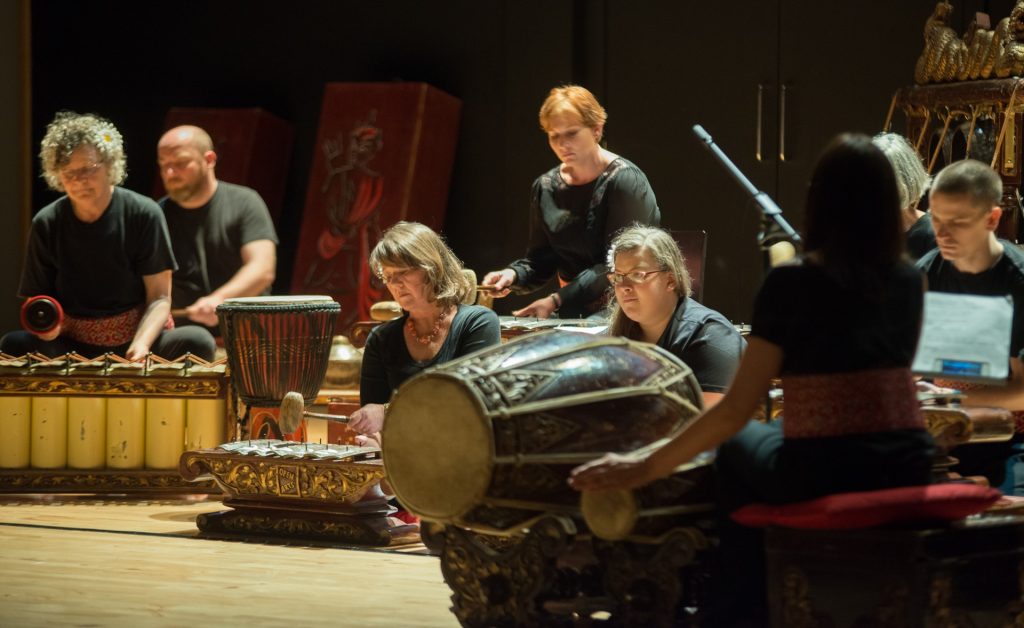
This month, our Musical Director, Beverley, introduces us to the enchanting world of Gamelan. Gamelan is a unique Indonesian ensemble that serves as a wonderful avenue for both disabled and non-disabled individuals to embark on their musical journey, fostering confidence, and enhancing mental well-being.
Music is often hailed as a universal language that possesses the remarkable ability to transcend barriers and unite people from diverse backgrounds. For disabled people, music not only offers a mode of expression but also serves as a pathway to empowerment, inclusion, and overall well-being.
Research from the UK Department for Digital, Culture, Media & Sport in 2022 underscores the profound impact of music engagement on the well-being of disabled people. Key findings reveal that 79% of disabled adults perceive participating in music activities as beneficial to their mental health, with 68% reporting increased feelings of confidence and self-esteem. Additionally, 63% express a heightened sense of community connection through musical interactions.
However, finding accessible musical instruments and courses tailored to accommodate diverse learning styles and approaches can be challenging. While organisations like our friends at Drake Music NI are pioneering the development of customised electronic instruments for disabled musicians, accessibility to traditional instruments remains limited. An exception to this is the Indonesian Gamelan.
My journey with Gamelan began during my school years when my class attended a course of gamelan sessions at Queen’s University Belfast. There, I had my first encounter with these remarkable instruments and immediately fell in love with their exotic tunings and rhythms. Years later, after completing my BMus and Masters in music, I had the privilege of travelling to Indonesia with Open Arts to undergo training to become a facilitator. Whilst there, I also saw our own newly-commissioned Gamelan being made, and in July 1995 the instruments were shipped to Belfast. Since then, the Open Arts Gamelan has been a cherished part of our organisation, travelling the length and breadth of Ireland, and working with people of all ages and abilities.
The Gamelan ensemble consists of drums and melodic percussion instruments, including metallophones and gongs of various shapes and sizes, all beautifully carved and embellished with gold. Its ergonomic design and tactile nature make it inherently intuitive to play, transcending physical limitations and allowing people of all abilities to explore their musical creativity.
For many disabled people, the Gamelan goes beyond mere music-making; it serves as a safe space for holistic healing and self-expression, and participants often describe the experience of playing Gamelan as profoundly relaxing, with its resonant sounds aiding in stress reduction and promoting overall well-being.
With our Gamelan finding a lovely new home in Connswater Shopping Centre, we aim to provide even more people with the opportunity to experience the enchanting sounds of this captivating ensemble.
Intrigued? Visit our website for more information on our current Gamelan programme and follow us on social media to stay updated on upcoming taster sessions, workshops, and events.
March 2024 - Dinner and Disability
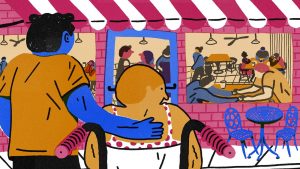
In the days just before the Embrace the Inclusive Spirit seminar in Titanic Belfast, an article by food critic Jay Rayner was published in the Guardian. In it he highlights the difficulties of finding an accessible restaurant to have lunch with Jamie Hale, who is a wheelchair user and runs the disabled-led arts organisation Criptic Arts. It fully resonates with what our Lived Experience Team shared with us during our consultations for the Inclusive Tourism project.
During our consultations, we heard about lack of access, little or no information on websites, no alternative communication material provided e.g. braille or large print menus. Another common issue for our Lived Experience team is loud music, which makes it difficult for those who are d/Deaf, have autism or anxiety.
This is why we are so pleased to be part of the Belfast Inclusive Tourism project with Belfast City Council, Tourism NI and Visit Belfast dedicated to making Belfast more inclusive.
Our Lived Experience Team (which is composed of individuals with diverse disabilities) has been engaged to provide insights on enhancing accessibility in the tourism and hospitality sector. They have shared invaluable experiences and recommendations in a series of accessible itinerary videos that explore some intriguing destinations in Belfast. The team have also helped produce a series of training modules to help businesses to communicate more confidently
There has been a lot of positive feedback after Embrace the #InclusiveSpirit tourism event with organisations sharing what they learned and what they will do differently.
Here are some encouraging examples:
“Making accessibility changes should be viewed as an investment not a cost.”
“See beyond mere compliance; to never use the phrase ‘fully accessible’; that providing meaningful information to disabled visitors in advance is critical”
“We will try to factor inclusion in from the design stage, not as an afterthought”
Companies like AccessAble and Euan’s Guide also provide a fantastic service with digital detailed access guides for tourist attractions, venues, restaurants and more in Belfast and beyond.
As part of the Inclusive Tourism project, there is another event yet to come – a Living Library event on 26th of March, which is free to attend.
Beyond this we will be rolling out our Chatting for Change programme and are encouraging businesses that want to continue their journey of being more inclusive to get in touch!
February 2024 - The taxing thing about taxies: Wheelchair Accessible Taxis in Northern Ireland.
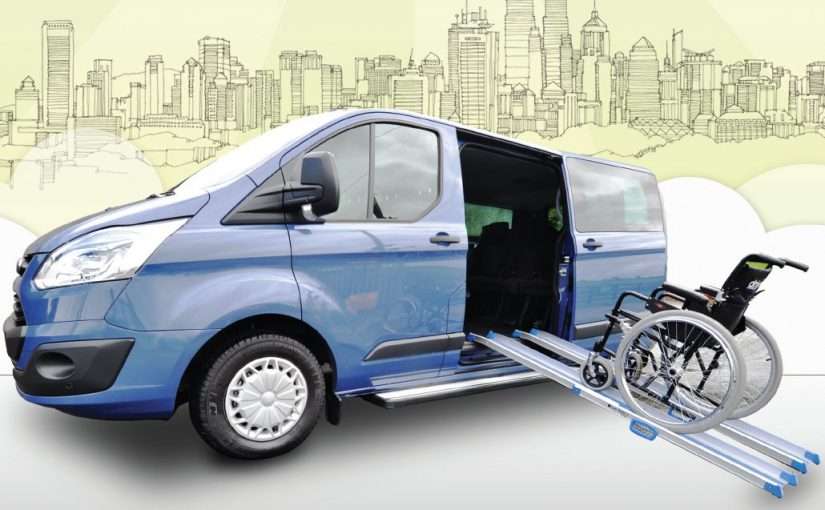
Imagine you have plans for a night out, only for your wheelchair accessible vehicle to break down the day before. Not everyone can use a manual wheelchair or transfer to a car seat so you try to book a wheelchair accessible taxi in advance, but you’re met with “We have none available ” or “We can’t guarantee we will have one available.”
Organising travel for a group of disabled artists is also challenging. Public transport offers limited wheelchair spaces on buses and trains, and finding multiple accessible taxis is impossible.
This situation isn’t merely an inconvenience—it’s a serious issue, particularly in emergencies. Just recently, Caitriona Brauder, a powerchair user, found herself stranded in Belfast city centre after her vehicle broke down. Unable to secure a wheelchair accessible taxi, Caitriona spent the night in a south Belfast library, enduring 14 hours without access to an appropriate toilet for her needs.
The lack of wheelchair accessible taxis has a profound impact on our lives and well-being. The safety net of alternative transport options in emergencies isn’t readily available to us, making travel even more daunting.
There is some hope though, the Northern Ireland disability charity Disability Action holistically appraised access to transport by disabled people in response to the consultation on raising taxi fares from the Department of Infrastructure. In response they have proposed the following solutions: to offer incentives to drivers to provide wheelchair taxis; the introduction of a taxi card similar to that which currently operates in Scotland, which allows disabled people to access reduced taxi fares. and obtaining more funding to extend their Disability Action Transport Scheme to evenings and weekends to better serve disabled people. We hope with the restoration of the NI Executive, things will start to improve.
Excitingly, there is also The Wayfinding Centre in Dublin, which is designed to simulate real-world public transport scenarios to provide familiarisation training for disabled people but also serve as a space for training professionals such as transport operators and those responsible for future transport systems and designing the built environment.
January 2024 - The Spoon problem: Energy management and accessibility.
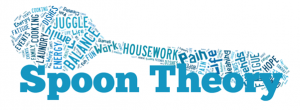
This month Cinzia reflects on the importance of energy management and how the ‘Spoon Theory’ can impact accessibility in the arts.
It’s the beginning of a new year and for many it’s a time for setting new challenges and getting out of your comfort zone. My first thought when asked what my goals for the new year are was “some days I don’t even have the energy to finish my daily tasks, let alone take on new projects” and talking to fellow disabled artists I realised that I was not the only one feeling this way.
For many disabled artists, especially those with chronic illnesses, experiencing fatigue, or pain, energy is a limited and precious resource that has to be carefully managed and rationed. This is sometimes quite difficult to explain to venues or event organisers, that’s when the ‘Spoon Theory’ can come in handy.
The spoon theory is a metaphor that was coined by Christine Miserandino, a writer and blogger who has lupus. She uses spoons as a unit of energy to explain how it feels to have a chronic illness. If you have a handful of spoons of energy available per day and ‘use’ one (or more) for each task you do, at the end of the day you may have none left. This is why disabled people and people with chronic illnesses have to plan their days and activities in advance, so as not to run out of energy. For disabled people, many tasks require more spoons than for non-disabled people and some days they will have more or fewer spoons.
The spoon theory has been adopted by many disabled people, to describe their energy limitations and how they cope with them. With disabled artists fighting to have more control over their own working environments, and access riders becoming more widely used with employers, venues and organisations to highlight access needs, energy levels should be included as demonstrated by Unlimited’s guide to creating an access rider.
At Open Arts we are very aware energy levels can be an issue for many of our participants, and plan our classes and activities accordingly in line with our individually focused access approach.
Here are some tips on how you can use the Spoon theory.
Know your spoons.
Be aware of how many spoons you have on a given day, and how many spoons each activity requires. This may vary depending on your condition, mood, environment, and other factors.
Prioritise your spoons.
Decide which activities are most important to you, and which ones can be postponed, delegated, or eliminated.
Conserve your spoons.
Find ways to save your spoons and use them more efficiently. You can do this by simplifying your tasks, breaking them down into smaller and more manageable steps, or using tools and aids that make them easier. You can also schedule your tasks according to your energy patterns.
Replenish your spoons.
The final step is to replenish your spoons by resting and recharging.
December 2023 - Seasonal Serenades.
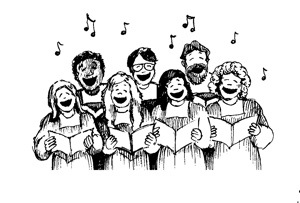
Join us on a melodic journey as Jemma explores the social, physical, and mental health benefits singing brings, especially in a month where most of us will be singing Christmas carols to get into the festive spirit.
According to research by the British Lung Foundation, singing helps increase lung capacity and strengthens the muscles used in the breathing process. So it can be a great exercise, especially for those with lung conditions such as COPD or asthma.
It is also used in speech and language therapy to encourage those with alternative communication to connect with others.
I have epilepsy, which sometimes affects my short term memory. I’ve found that since joining the Open Arts Community Choir nearly 9 years ago the process involved in learning new songs has been beneficial to my memory. There are lots of studies that say singing is beneficial to other neurological conditions such as Parkinson’s or Dementia. As highlighted by actress Vicky McClure in her 2018 documentary “Our Dementia Choir,” which was set up to discover the true extent of music’s positive impact for those living with dementia. You can watch the follow up documentary “Our Dementia Choir Sings Again”on iPlayer here or visit their website https://www.ourdementiachoir.com/ to read the individual stories of those involved.
You don’t have to be part of a choir or be the next Mariah Carey to sing and get the benefits. Simply singing your favourite song in the kitchen whilst cooking dinner, or in the car on your way to work you are breathing deeply and relaxing.
Try these top 5 lung busting carols, as nominated by the British Lung foundation and give your lungs a work out.
- Silent Night
- Winter Wonderland
- White Christmas
- When a Child is Born
- Let it Snow
If you’d love to sing with a group, Open Arts Community Choir hosts monthly open nights called “Big Choir ” for anyone aged 18+ (with or without disabilities) to take part in a night of singing. You don’t have to be able to read music, just have a love for singing, meeting new people and having a bit of craic. The next big choir is Monday 5th February from 7-9pm in Divis Community Centre, Ardmoulin Street, Belfast.
In the meantime, Open Arts would like to wish you a very Merry Christmas and Happy New Year and remember, singing isn’t just for Christmas.
November 2023 - Mindful 9-5: Building a Healthy Workplace Culture.
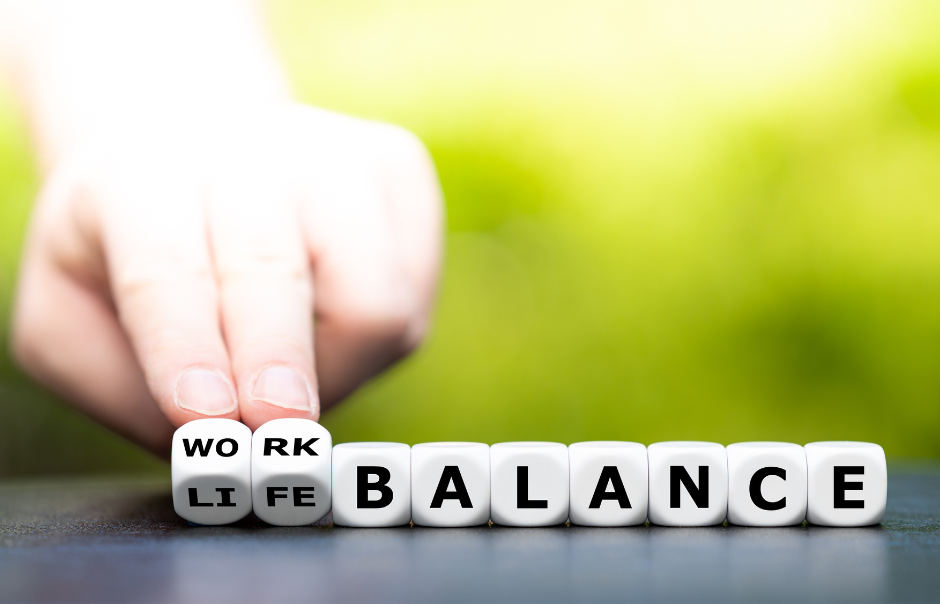
To celebrate #worldwellbeingatwork Jemma explores how the Open Arts team promotes positive wellbeing in the workplace and the impact it has on their mental health.
Open Arts operates an open door policy – our office can transform from a meeting room to a social area for participants and artists all in the matter of minutes. Pop into our office and it isn’t unusual to see participants having lunch with us, chatting about their weekend and generally having a bit of craic.
We always talk about the “Open Arts family,” and providing a supportive community where both staff and the wider team feel heard and understood is vital to the work we do. Everyone is more open to discussing concerns, challenges, and stressors, resulting in stronger relationships and a happier, healthier, more productive team.
Here are some ways the Open Arts team practises self-care, by taking time out to clear their minds and manage the stresses of everyday life.
Jemma – For me exercise, especially running, is an important part of my morning routine. It’s not only the physical benefits, but time for myself where I can mentally detach from the world around me and concentrate just on my breathing. This gives me a sense of achievement and clarity to kick start my day.
Eileen – I am lucky enough to be able to walk along the river or through parks to get to and from work and for me, this is essential. It sets me up for the working day and helps me wind down on the way home. Since I was able to read, I have always read before I go to sleep. I have no TV or computer in my bedroom, just old fashioned books, which help me exercise my imagination and free my mind from everything else.
Bev – A couple of years ago, I discovered the art of crocheting (a form of knitting with one hook). I’ve always enjoyed creating visual art, but I find that crocheting has a particularly calming effect on me whenever I’m feeling stressed. I think it’s the gentle repetitive sound and movement of the hook catching and pulling the yarn that soothes me, plus that feeling of achievement when I’ve completed another woolly project!
Cinzia – Dancing is my way to relax and release negative emotions through movement. If I need to get out of my head for a while I listen to audiobooks in different languages. I love learning new words and discovering the connections between different languages. A guilty pleasure at the moment that helps me relax is watching Korean and Chinese dramas on Netflix from historical to fantasy to thriller. I can usually find something interesting to binge watch with Kuro (my cat).
Here are some simple ways to increase wellbeing in your workplace:
- Take time away from your computer.
- Stretch, even if it is only for 2 mins.
- Stay hydrated.
- Healthy snacks, to avoid the afternoon “slump”.
October 2023 - There's No Such Thing as Too Much Representation: Discussing visibility of disability on screen.
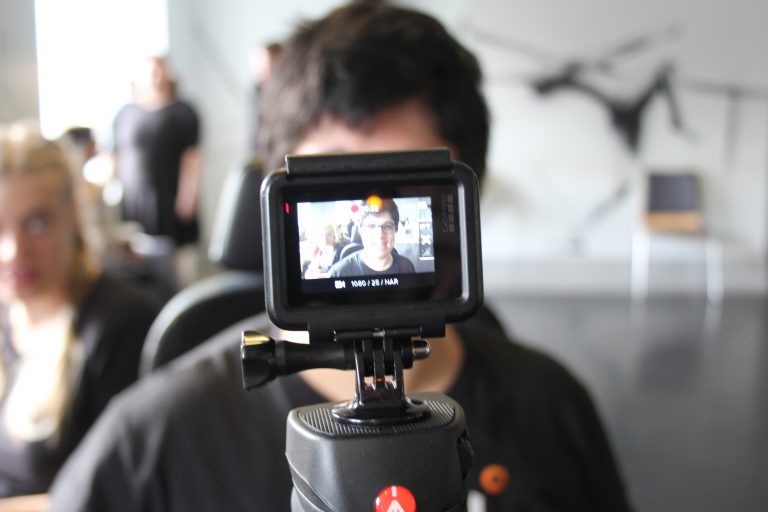
Recent research found that it will take almost two decades for people with a disability to be properly represented in the UK media industry. Cinzia Savonitti asks why more people like her are still not represented on our screens.
According to the recent Creative Diversity Network (CDN), it will take almost two decades for people with a disability to be properly represented in the industry. The report found that disabled people are still very under-represented across UK programmes. On and off-screen, disabled people make just 6% of contributions.
Main causes of this are the lack of interesting and well-developed roles, simplistic portrayals of disabled people as heroes, victims, or both and the prevalent trend of non-disabled people playing disabled characters.
A recent Nielsen study completed in 2021 found that 95% of disabled parts are performed by non-disabled actors. This can perpetuate stereotypes and misrepresent the experiences of disabled individuals and can limit opportunities for disabled actors to work and gain visibility in the industry.
In the past ten years however, things have been slowly improving. TV and film have given a crucial platform to disability representation with interesting and well-rounded disabled character roles in some of the most prominent TV programmes such as Ryan Stocks in Emmerdale – played by James Moore, who has cerebral palsy and Amy Conachan, who plays Courtney in Hollyoaks and is a wheelchair user.
When An Irish Goodbye won best live-action short film Oscar in 2023 with an amazing performance by James Martin, we made another step in the right direction and many people with disabilities are hoping it will lead to more inclusion of their stories in media and bring more opportunities and visibility for disabled actors.
So let disabled people tell their stories in front and behind the camera, make it a regular occurrence to the point where the discussion will be centred on the quality of the story not on the minority representation or the need for it.
It’s time and we deserve it!
September 2023 - I'm not your inspiration!
The objectification of disabled people.

While writing and doing research for last months blog, which focused on the use of language, I realised that the inspirational narrative was a huge factor to take into consideration, but given the importance and the complexity of the topic we decided it should deserve its own entry.
Here is my take on trying to explain the concept of ‘inspirational porn’ and why it has such a negative impact on the disabled community.
An image of an amputee running on a track with the caption: “The only disability in life is a bad attitude.” A wheelchair user sits at the mountaintop and the quote below states: “What’s your excuse?”
I’m sure you have seen this type of message or something very similar on your social media feed.
I could never really explain what made me uncomfortable about this type of narrative until I came across the TED Talk video by late Australian comedian and disability rights advocate, Stella Young (https://www.youtube.com/watch?v=SxrS7-I_sMQ) who very aptly called these types of examples ‘inspiration porn.’
She says, “I want to live in a world where we don’t have such low expectations of disabled people that we are congratulated for getting out of bed and remembering our own names in the morning.”
The idea that then we, disabled people, do the most mundane task, we are amazing, perpetuates the stereotype of disabled people as helpless victims that need pity. Or that we are ‘superheroes’ who have triumphed over adversity, as if our lives are so awful that any achievement is a shock.
There is also the “what’s your excuse?” narrative, the idea that anything can be overcome if only we tried harder! And if we fail to overcome it, it’s on us. As Stella Young says in another of my favourite quotes, “no amount of smiling at a flight of stairs has ever made it turn into a ramp.”
The “your disability makes you so inspirational” angle, which is ever present in public consciousness and the media, means that these stories are is not showcasing a person or an artist but being used to elicit emotions that, let’s face it, are designed to make them, non-disabled people, feel better about their life. As disabled artists we often find ourselves portrayed in a very tokenistic way, where our work is reduced to our disabilities and not the stories we want to tell.
As an organisation we have experienced this type of attitude in many different settings for example, our Luminous Soul dance company being described as “adorable.” We are not puppies, we are dancers.
What’s the solution then?
It is very simple. Speak to us, disabled people, and allow us to tell our stories how we want to tell them.
August 2023 - Disabled and proud: words have power.
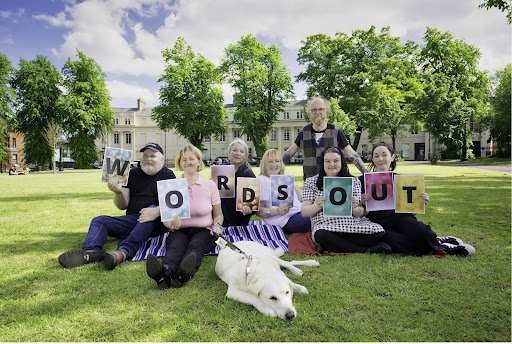
After the controversy surrounding the comedian Rosie Jones using the R word in the title of her Channel 4 documentary, which aired in July, Cinzia reflects on the importance of language when talking about disability.
Growing up in Italy during the 90s, the use of offensive language including the R and H words was very common and in fact, it still is today. I think that is the reason why, for a long time, I didn’t want to be associated with the word disabled. I thought ‘people should see me, not my disability!’ And to be very truthful, I wasn’t as bothered about language then, I was more concerned about practical issues, like lack of basic physical access.
I have now lived in Northern Ireland for 9 years and in that time, particularly thanks to my involvement with Open Arts (first as a dancer and now as an employee), I have realised that ‘disabled’ is not a dirty word. I have reclaimed the word for myself and I am empowered by it and proud of it.
Being involved with the disabled community and working with an arts and disability organisation has made me realise that the language we use is actually vitally important. It can shape identity, influence how people think about disability and can have a real and practical impact on everyday life.
At Open Arts we use the term ‘disabled artist’ with pride and as Jo Varant, Director of Unlimited, says in her brilliant blog post about disability and language https://weareunlimited.org.uk/blog/is-disability-a-dirty-word-language-and-the-labels-we-use/
“The choice to use ‘disabled people’ as opposed to ‘person with disabilities’ is a political one. It comes from the social model of disability that defines us as disabled by the lack of access in the environments, systems, and structures around us …”
It is unacceptable to use terminology that describes disability in a negative or victimised light, like ‘wheelchair-bound,’ ‘impairment’ or ‘suffering from.’ Phrases like ‘differently abled’ are also not appropriate. We are not differently abled, we are disabled by the structures and systems around us. Similarly, when talking about non-disabled people, language is also important and reflects how you perceive disabled people. Calling non-disabled people ‘able bodied’ or ‘normal’ suggests that you believe that we are abnormal or do not have able bodies.
In Open Arts, we understand that language is never static, it evolves and changes and people may identify with different words or a mix of words.
The solution to this, at an individual level, is very simple: ask the person what their preferences are, not only in regards to their access needs but also the language to use when referring to them.
So is providing access more important than using appropriate language?
No, they are both essential. Language reflects how you see disabled people, your best efforts to create access will be null and void if the disabled community are uncomfortable with your view of them. Language influences how people think, how they feel about themselves and others, challenges stereotypes and it is the catalyst for change.
July 2023 - "Please do not touch."
Can visual art be accessible for all?
This month, Cinzia reflects on making visual art accessible for blind or partially sighted people.
Our new exhibition ‘Pieces of Us’ is currently on show in Arts For All. It showcases the work of our 3 visual art groups, one of which is specifically for those who are blind or partially sighted.
Visual art is a medium of expression that can bridge gaps across language, time and culture but can it really be universally accessible?
Not all galleries are physically accessible and most often exclude blind and partially sighted people. One common misconception is that the only way to consume, practice and experience art is visual, making it difficult or even impossible for blind or partially sighted people to engage with the medium.
I chatted with some of our blind or partially sighted participants, who explained the many barriers to experiencing an exhibition or enjoying an art class. This is because access is still not provided and is considered unimportant as it will only be used by a limited number of people, which will not greatly increase public attendance or justify the costs. However, according to RNIB there are over 2 million people in the UK living with sight loss of which 340,000 are registered blind.
There are inclusive solutions like audio description, touch tours and tactile-based art. An upcoming example is the ‘Wolfwalkers’ exhibition at The Ark, Dublin. This is a collaboration between the Butler Gallery and Oscar nominated animation studio, Cartoon Saloon, which offers audio described and touch tours.
There are also more innovative examples such as the Lancaster City Museums’ project ‘Feeling as Seeing,’ which created 3D print relief versions of paintings from the their art collection.
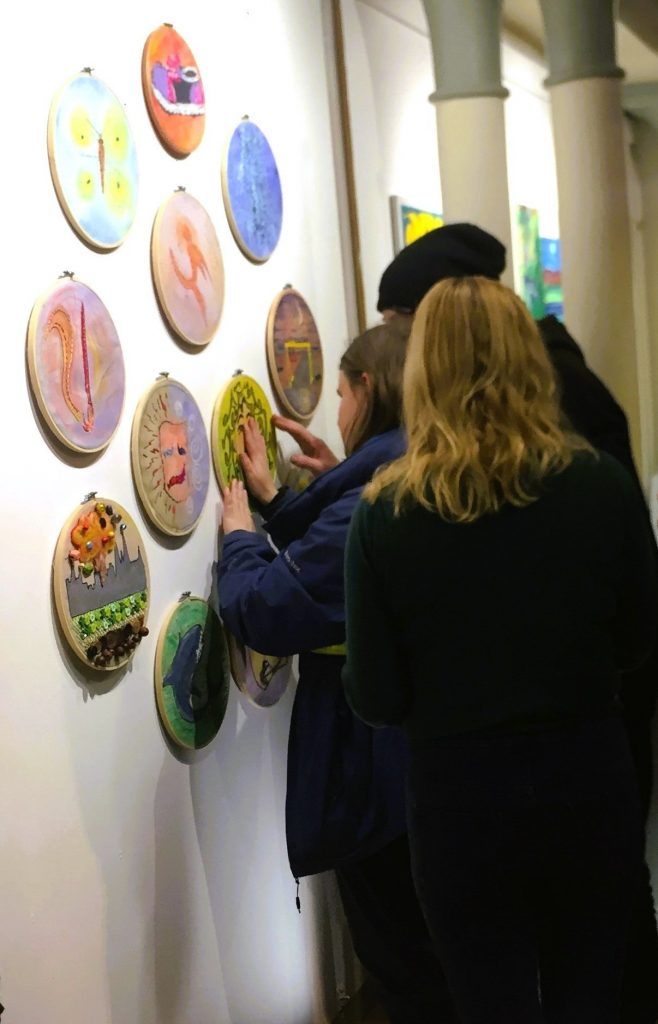
At Open Arts accessibility informs everything we do. We provide audio description and touch tours for our events. Braille and other accessible material such as audio files and large print are always planned as part of a project’s design phase.
Our exhibition launch for ‘Pieces of Us’ on 29th June included one-to-one and small group audio described and touch tours.
Art classes can also be made accessible by teaching different techniques in different ways and offering tailored support for participants to ensure that everyone can participate fully and explore their creativity, regardless of disability. Our visual art facilitators support participants, who work in a variety of mediums, in learning different techniques and developing their creative skills in a collaborative and safe environment. As explained by Rene, member of our group for those who are blind or partially sighted.
“Open Arts brought me out of my shell and gave me the confidence to try new things and do things myself. I love the interesting types of projects that we do in class, from the different types of mosaics to the wooden ‘art boxes’ which we decorated according to our individual passions and interests…It is an amazing thing to see people experience your art and to have discussions with them about their different interpretations of it.”
Our new exhibition ‘Pieces of Us’ showcases multisensory art including print, mosaic and collage. It will be on display Monday to Saturday 9.30 am – 4.30 pm* in Arts for All, Cityside Retail Park until the 31st of August.
If you would like an audio described and/or touch tour please get in touch with us at info@openartsni.org or 028 90 240765.
*Please Note: Opening times may vary, check Arts for All Social media pages Facebook: @artsforallbelfast Twitter: @arts4allbelfast Instagram: @artsforallbelfast.
June 2023 - Fit to fly: A reflection on touring for disabled artists in response to #RightsOnFlights
The campaign #RightsOnFlights has been gaining traction and just this morning TV personality Sophie Morgan appeared on Good Morning Britain talking about the campaign. There are many harrowing stories of disabled people’s experiences on flights. Cinzia reflects on the difficulties of travelling and touring for disabled artists.
I have always loved to travel and after starting my journey as a disabled dancer with Open Arts, I realised how important it is for disabled artists to travel and meet, share, learn and get support and ideas from other disabled artists.
Touring and performing, locally and internationally, not only gives us more visibility and opportunities to grow but is also essential for artistic practices to be shared, new themes to be explored, and information exchanged.
Filip Pawlak, Curator of Europe Beyond Access ‘Learning Journey’ (www.disabilityartsinternational.org/europe-beyond-access/learning-journeys) states:
“When I started getting to know the art of other disabled artists, I began to find my experiences in them, find a common language, and appreciate my unique perspective. I felt part of a larger whole that bravely fights for its pride and shares similar challenges regardless of where it comes from. In this diversity of bodies, languages and sensitivities, I found my place in art again.”
However, travelling as a disabled artist is not easy and requires a lot of preparation.
Open Arts Community Choir, Luminous Soul dance company and members of our Monday Players drama group have all toured at different times to the USA, Portugal, Spain, Latvia, across Ireland and the UK. Each journey presented multiple issues that needed to be taken into consideration. For example, airlines require all sorts of technical paperwork for powerchairs, mobility scooters and medical equipment such as CPAP machines. During our travels, we have had more than one damaged piece of equipment.
Many airlines also charge for allocated seating when booking online and while you can arrange this for free for people who need assistance, it is often a long, arduous process. Disabled passengers are often left on flights for a prolonged period once the flight has landed, which causes discomfort and upset.

Once landed, there is another set of challenges. Access means very different things in different countries so using public transport is a minefield. Accessible accommodation is limited and in fact, not always accessible. Open Arts has had to hire additional equipment while on tour for hotel rooms e.g. shower chairs, hoists and grab rails as they are not available as standard.
The British Paraorchestra published a list for less stressful international touring that gives useful tips to travelling disabled artists and organisations (www.disabilityartsinternational.org/resources/the-british-paraorchestra-in-qatar).
This is incredibly useful but it does highlight the level of pre-planning and additional time that is required by disabled artists and companies with disabled performers to tour.
It’s time for the travel industry to stop thinking about disabled travellers as the exceptions and put accessibility at the forefront of everything they do.
For change to happen, it is essential to listen to disabled people when they speak out about these issues and support campaigns like the Rights On Flights campaign (https://www.disabilityrightsuk.org/rightsonflights). It is calling for the airline industry to be held accountable for damage to wheelchairs, essential mobility aids or when they fail to provide adequate assistance, and are now asking the public to take part in the Civil Aviation Authority’s airline accessibility consultation, which closes on 21st July, you can find it here: (https://consultations.caa.co.uk/corporate-communications/performance-framework-for-airline-accessibility/)
May 2023 - The price of disability: Reflecting on the extra costs of disability and on our worth as disabled artists.
As disabled people continue to face unfair extra costs, Cinzia Savonitti reflects on the additional costs of disability and how it affects their lives.
People in Northern Ireland are being greatly impacted by rising costs at a time when they already have the lowest gross weekly income compared to the rest of the UK, all of which is compounded by the lack of a functioning N.I. Executive. In addition to the cost of living crisis, disabled people have to deal with the extra cost of disability.
According to the Disability Price Tag 2023 report from the charity Scope “… on average, disabled households (with at least one disabled adult or child) need an additional £1,122 a month to have the same standard of living as non-disabled households (with disability benefits taken into account).”
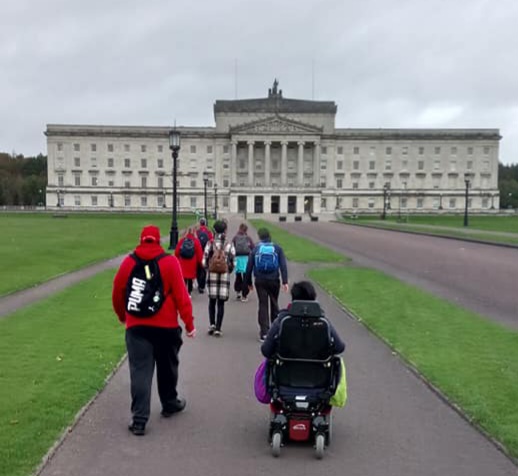
This shocking data made me reflect on my personal experience. The first thing that comes to mind is my powerchair, an essential factor in me being able to be independent – the reason why I can get to work and pay my bills. I have to charge my chair every night for at least 16 hours and sometimes top it up during the day if my routine changes even slightly. This has a huge impact on my electricity bill.
I rely on public transport and have to find other ways of traveling every time there is an issue with ramps and lifts not working (or not available). This means that I have to pay for an accessible taxi (when I can find one) or take a longer route to reach my destination, adding extra cost to the already expensive daily bus and train tickets (not taking into account the cost of paying for my PA when she needs to travel with me.)
When thinking about grocery shopping I can’t always go for the cheapest option. For example, I can’t physically prepare certain foods (opening a standard can of tuna is impossible for me so I buy the easy peel type which is great but not cheap) so more expensive ready meals are sometimes the only option I have. I also rely on deliveries for heavier goods that I cannot carry, which cost additional money.
These are only some of the examples that affect me personally and they don’t even remotely cover all the extra costs that disabled people have to deal with like specialist equipment, mobility aids, car or home adaptations etc.
In addition to those issues we have also to take into consideration that disabled people are often asked to use their skills for free, especially in the arts sector where 82% of disabled artists, arts workers and creatives are regularly expected to do something for nothing, as it emerges from Unlimited’s Nothing for Nothing 2023 report.
So how can we address the extra costs of disability and stop the exploitation of disabled artists and art workers?
I don’t have a ready solution apart from continuing doing what Open Arts and other organisations and charities do every day, raising awareness of these issues, supporting campaigns like the Disability Price Tag and #NothingforNothing campaign and continuing to support and fight for disabled people’s rights.
April 2023 - Creating Access is not static.
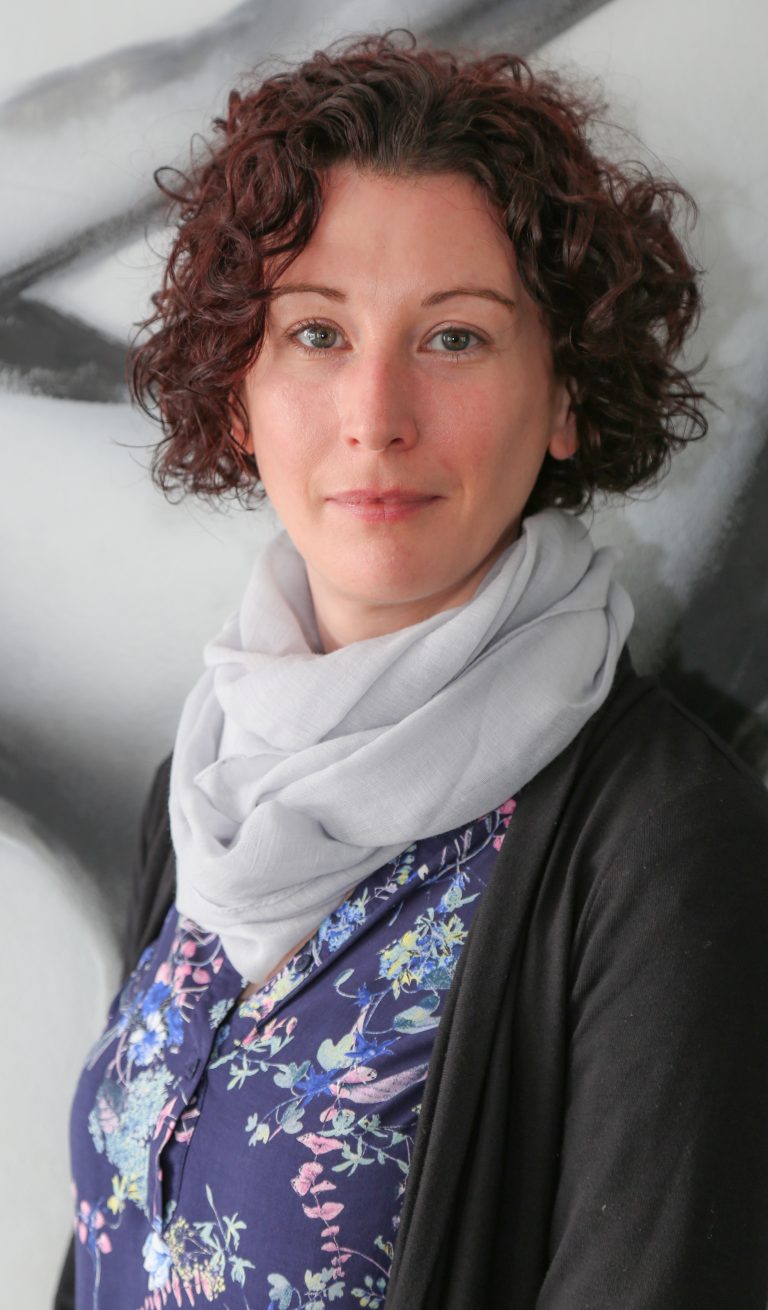
As she celebrates her tenth year in the role of CEO with Open Arts, Eileen Branagh reflects on the reasons she started to work in the arts and disability sector, how things have changed, and the work that is still to be done.
My earliest understanding of disability was when my Daddy acquired total sight loss from a brain haemorrhage when I was five years old. While he regained sight in the following years, he remained partially sighted for the rest of his life. I remember Daddy using his white cane and while I tried my best to sighted-guide him, I wasn’t very good at it as a child!
So growing up, my idea of disability access was based on my personal experiences with Daddy and mostly focused on physical access. When I started working in the arts sector, over 20 years ago, the idea of disability access as a tokenistic, ‘one-off’ gesture was very prevalent and while there have been many improvements, unfortunately, it is still widely present today.
Working with Open Arts has made me aware that access is not ‘one size fits all’ – it is a dynamic, ongoing process and needs to be tailored to the individual. What we do as an organisation is focused on individuals and involves constant development, planning, and communicating with our users, as laid out in our access statement. In my role as CEO, I have made it my absolute priority to meet, work with and learn from disabled artists, participants, and colleagues.
Our ultimate goal as an arts and disability organisation is not to be needed anymore. Until then we will continue to do what we do working to improve the artistic and creative life of disabled people and to fight ableism in all its forms.
March 2023 - The art of not making a fuss: Should disabled people hide to make society more comfortable?
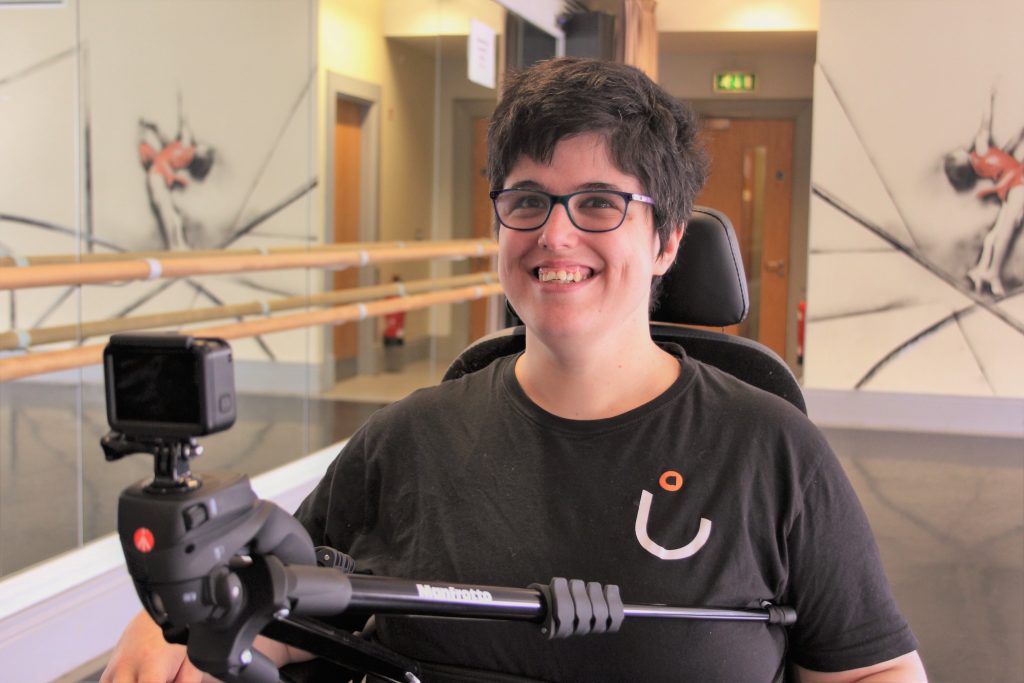
With incidents of disability hate crime in Northern Ireland at their highest level since recording began in 2005, Cinzia Savonitti asks – “should disabled people hide some or all of their disabilities, to make society more comfortable?”
In rural Italy, where I was born and raised, disability was not something that was openly discussed. Growing up, I was encouraged “not to make a fuss” or be an inconvenience. The doctors that I encountered were following my country’s medical model of disability – where my body was something to be ‘fixed,’ with or without my active participation or consent.
Thankfully, since I moved to Northern Ireland and became involved with Open Arts, I have learned about and embraced the social model of disability, where the ‘problem’ is not the disabled person, but society around them.
While consulting with my fellow Open Arts participants as part of research for our new Disability Equality Training programme, we shared some hair-raising stories of everyday ableism in Northern Ireland. These stories include:
- Being asked by a train worker “Do you need to use the train every day?” (No expectation that we might have a full-time job!)
- Being talked to IN VERY LOUD VOICES, as if we don’t understand
- Being asked if we ‘know’ a certain other person, simply because they are also a wheelchair user
- Being talked to as if everything we do is a big accomplishment or an inspiration
Since “…21.7% of respondents aged 16-64 in Northern Ireland (Apr-Jun 2017) reported a long-term illness and a disability” (The Northern Ireland Statistics and Research Agency), we’d like to offer some suggestions about how to make life easier for both disabled and non-disabled people here:
- Talk to me – the disabled person – not the person accompanying me
- Don’t patronise me or talk to me like I’m a child. Just because I have a disability, doesn’t mean I’m not well-educated.
- Come over and say hello to me – especially if I’m visually impaired.
- Don’t assume I need help. Ask first, and if I agree, ask permission before touching or entering my personal space.
- If I tell you what I need, don’t feel you’re being criticised – just listen.
- Don’t ask me about my disability or what is “wrong.” It’s a personal matter and sometimes, I just don’t want to talk about it.
February 2023 - Strictly speaking, every body can dance!
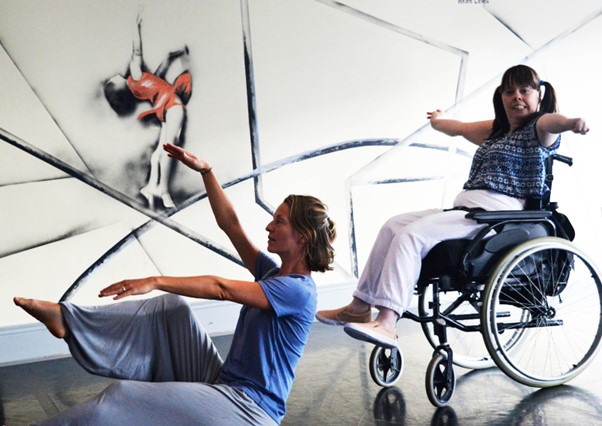
Following the ableist backlash to the news that Strictly Come Dancing will cast a wheelchair-user celebrity for this year’s series, Luminous Soul member Cinzia Savonitti shares her thoughts and experience as a wheelchair dancer and her hopes for the show.
As a wheelchair dancer and as a disabled person working in the arts, I’m really pleased about the news that Strictly Come Dancing is set to cast a wheelchair user for the upcoming series due to air later this year.
The decision comes after the successful casting of the first ever deaf participant in former Eastenders actress Rose Ayling-Ellis. She won the contest in 2021 alongside Giovanni Pernice, whilst Paralympian Ellie Simmonds made it to week six last year.
While the proposed casting is obviously good news, it is deeply concerning that it sparked mixed reactions on social media and in the press. Several disability rights campaigners have spoken out to highlight the shocking ableist comments made by some not wanting to watch a wheelchair dancer and comparing the prospect to” having dancing dogs or cats as partners”.
In addition, some media outlets referred to the possible contestant as being “wheelchair-bound” and “a difficult situation to manage,” perpetuating the stereotype that our wheelchairs are chains that limit us and that working with disabled people is ‘difficult’.
I am not limited by my wheelchair – my wheels allow me to move freely and dance in different and amazing ways, thanks to Luminous Soul, the dance group run by Open Arts. What is ‘difficult’ is a lack of accessibility in media production, and disability awareness, both in the media and in society as a whole.
Research from a 2021 report from Creative Diversity Network shows that it will take almost two decades for disabled people to be properly represented in the media. While 17% of the U.K. workforce is disabled, and 18% of the U.K.’s population, in the TV industry there are only 4.5% of disabled people working behind the camera and 6.8% in front of it. Decisions like the one that the Strictly team has taken which showcase disabled artists on “prime time” television are a step in the right direction.
As my fellow Luminous Soul member and mentor Linda Fearon says:
“The world is full of disabled and non-disabled people. We walk, run and wheel past each other every day, so it makes sense to me that we dance together.”



